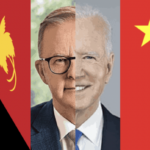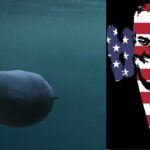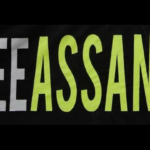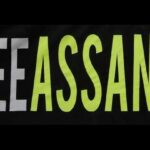The Flaccid Diplomacy of Vassal State PM Anthony Albanese in the US

PM Anthony Albanese has again been in the United States standing side-by-side his local counterpart Joe Biden on podiums just like he did in March, when he and the American president laid out the details of the AUKUS pact, which included a bill of at least $368 billion.
First hatched by then PM Scott Morrison in September 2021, AUKUS is supposed to see our nation acquire eight nuclear-powered submarines over several decades commencing in 2030, and while the public was not consulted on entering the pact, it was instead presented as a done deal.
So, as Albanese stood beside the president in the White House Rose Garden on Wednesday, it was still difficult to hear Biden stating, “Democrats and Republicans alike understand the strategic value AUKUS brings to our nations, and I urge congress… to pass our AUKUS legislation this year”.
But both Labor and the Coalition had spruiked AUKUS as a finalised agreement, and it’s only begun to emerge more recently that US congress is yet to approve it, and, in fact, Albanese has just been over there attempting to convince US legislators to pass the bills to facilitate it.
And just like the obedient vassal state leader that he is, Albanese actually stated at the press conference that Australia appreciates the Biden “administration’s efforts to operationalise AUKUS and work with congress to pass the legislation needed to realise our AUKUS ambitions”.
Indeed, this further appeared like our nation was grovelling to empire to seal the deal that in essence benefits the US over all others involved, whilst Washington also continues to incrementally broaden its military presence on this continent to advance its campaign to wage war against China.
The US has it covered, anyway
“We are conscious that this is only the second time in history that the United States has shared this technology,” the PM said on Wednesday, which was a point Morrison used to emphasise.
“And this fact speaks to the deep trust of our alliance and the significance of the challenge that we face together.”
The technology Albanese refers to is the nuclear-powered systems that will propel the submarines that our nation is supposed to start acquiring from 2030 onwards, and the challenge the two nations “face together” is said to be the threat Beijing poses in the Indo Pacific.
Yet, China, our nation’s largest trading partner, posed no threat to Australia prior to this US-initiated military buildup in the region. And the “threat” the East Asian giant poses Washington is simply to be challenging US global hegemony in an economic sense.
The US has long been building up its military presence and constructing bases on the soil of foreign nations as part of its policy of containing China, and our country has become one of its most important links in this chain that sees around 49,500 US marines deployed across the Indo Pacific.
The first part of the AUKUS submarine deal involves the US selling Australia several of its Virginia class subs. But there’s now congressional opposition to this, as it’s claimed the US won’t have enough for its own fleet if it commences distributing some to our country.
However, the AUKUS deal also involves a pre-acquisition stage that will see the US and the UK establish Submarine Rotational Force – West, which is a permanent nuclear-powered submarine presence that will be created by our nation’s AUKUS partners in Western Australia by 2027.
This submarine force is said to be necessary to tide Australia over prior to acquiring its own attack submarines, as if war with China breaks out before our nation is in possession of them, the US and the UK will have some here on hand already.
Yet, it’s important to note that Australia is turning to nuclear-powered submarines not for defensive purposes, but because it will allow our nation to get close enough to China without detection to strike its mainland, and the US and UK subs to be stationed here are to serve that same purpose.
So, the grave importance that the White House sees for nuclear-powered submarines capable of being able to attack mainland China being stationed in Australia will be overcome long before our nation is meant to commence acquiring any of its own.
Julian who?
Of course, while Albanese has been over in the US apparently trying to convince congresspeople to sign on to a submarine deal that will ultimately benefit the current administration’s war strategy, the majority of Australians who support the release of Julian Assange had hoped he’d further raise that.
But at all the public appearances that Albanese made whilst in the United States, there was no mention of the Australian WikiLeaks founder.
However, there has been a bipartisan group of congress members over the last week organising a petition calling on president Biden to drop the prosecution against Assange.
The Australian has been held in the UK’s Belmarsh prison on behalf of the US for the last four years, as it seeks to extradite the journalist on domestic espionage charges laid against him for publishing secret US classified documents leaked by a US citizen whilst Julian was in a foreign country.
And Assange’s health has deteriorated to the point that he’s been assessed as not likely to survive the US prison system, after years of being held in prolonged solitary confinement in the UK, and this fear extends to any pre-trial time he’s made to spend in a US gaol.
For his part, Albanese has been weak on this matter. He has repeatedly said the phrase “enough is enough” in terms of how long the trial has dragged on for, and he’s dissuaded having to discuss the matter publicly, as he’s said negotiations over Assange’s release are best done in secret.
The journalist’s final appeal before the British courts is set to take place within the coming days.
And recently released documents obtained via freedom of information have again found that the Australian government is not attempting to prevent extradition but rather its contemplating the US trial going ahead.
So, one can rest easy that our prime minister wasn’t ruffling the feathers of his AUKUS superior, president Biden, with any uncomfortable talk about the prolonged torture of an Australian citizen, who’s being dealt with in an extralegal manner by the UK courts at every turn.
All systems go
Albanese has followed the Coalition’s lead on AUKUS all the way, whilst Biden has obviously not prioritised securing the deal, and if the Republicans take office at the next US election, there’s no guarantee they’ll even pursue the plan our nation has since set its goals in accordance with.
But as noted, no AUKUS submarines does not mean no locally positioned attack subs on the ready for war against China. And there’s also a US air force presence scattered around the country and currently 2,500 US marines stationed in the Northern Territory.
Under the 2014 Force Posture Agreement, the US military has unimpeded access to undisclosed Australian military facilities and areas, and when it decides to upgrade a base, Washington takes complete control of it, as has recently been the case at RAAF Base Tindal in the NT.
That upgrade involves constructing an area for six nuclear-capable US B-52 bombers to be stationed, and, as Australia has long abided by Washington’s policy of warhead ambiguity, our government will not know if these planes or any other locally stationed US vessels are carrying nuclear warheads.
And the US air force is further proposing to build a $40 million missions planning and operations facility in Darwin, as part of a $630 million military spend its making on expanding its local capabilities in northern Australia over the next two to three years.
So, whilst many will be pleased to hear that our PM was treated to a White House dinner this week, they might also be concerned as to whether Albanese has been feeling a little superfluous during his trip to the US, as it seems Washington has everything under control over there and over here.







